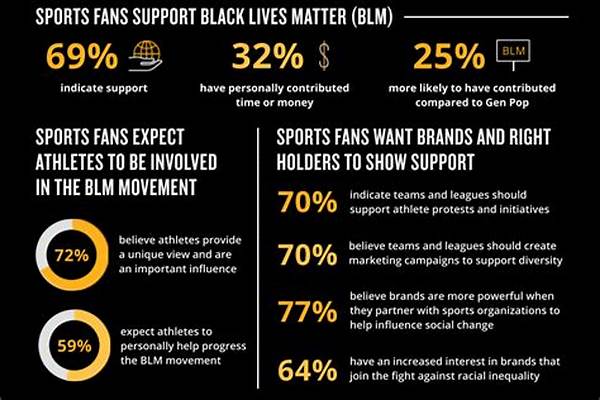How Sports Have Contributed To Social Change Globally

Sports have always been a universal language, transcending cultural and geographic boundaries to unite people across the planet. Historically, from the ancient Olympic Games in Greece to the modern-day World Cup, sports have served as more than just competitions. They are powerful tools for social cohesion, ambassadors of peace, and catalysts for change. The way sports have contributed to social change globally is nothing short of fascinating and inspiring. Let’s embark on a journey to understand how sports have shaped societies and driven social change around the world.
Read More : Breathing Exercises For Athletics And Racing
Imagine the electrifying atmosphere of a football match, where a single team’s goal can move nations and create unforgettable memories. Now, consider the power of that team uniting entire countries, creating avenues for conversations where there were once barriers. That is the audacity of sports. The most incredible feat is how sports have managed to become a platform for voices often unheard. Through sports, marginalized groups have found an arena to challenge stereotypes, gain visibility, and demand equality. The emergence of female athletes in male-dominated sports has redefined roles, encouraging gender equality and empowering women globally.
Furthermore, sports events like the Olympics have helped to build bridges between warring nations, creating a sanctuary for peace and understanding. In 1995, Nelson Mandela used the Rugby World Cup to promote national unity in post-apartheid South Africa. This event illustrated the profound impact of sports in healing divides and fostering social change. Modern athletes, using their platforms for advocacy, have also left indelible marks on societal structure, inspiring movements for racial equality, LGBTQ+ rights, and environmental awareness.
The Global Impact of Sports on Social Change
The role of sports in championing social change globally is unquestionable. It is not just about breaking records or achieving personal glory. It’s about teamwork, community, and transcending the barriers that often divide us. Athletes, as influencers, are pushing boundaries to create a more equitable world, demonstrating how sports can be a dynamic agent for transformation. Whether fighting for gender equality or advocating for climate change, the sports community is a testament to unity in diversity. As we continue to cheer for our favorite teams and athletes, let’s remember the broader conversation—the ongoing narrative of how sports have contributed to social change globally, shaping our world for the better.
—
How Sports Are Changing Societies
Sports have the unique ability to mirror society and, simultaneously, serve as a tool for transformation. In areas where politics and dialogue have failed, sports have often stepped in as a neutral ground. Take the Paralympics, for example, which has broadened perspectives and challenged stereotypes regarding disability. It’s more than a competition; it’s an educational tool that reshapes how societies view people with disabilities.
A sports figure can become a legend not only for their achievements on the field but also for their courage off it. Athletes like Serena Williams and Colin Kaepernick have used their platforms to highlight racial injustice and gender inequality, respectively. This advocacy has not only raised awareness but also inspired millions to join causes for justice and equality.
Moreover, when natural disasters strike, sports organizations frequently step up for relief efforts. This response often bridges communities and fosters cooperation that extends far beyond just temporary aid. Sports have the power to rebuild not just infrastructure, but spirits and communities, further cementing the role of sports in global social change.
Continuing the Legacy of Sports in Social Change
It is crucial to continue using sports as a means for promoting positive societal transformation. Sports can open dialogues on difficult topics, offer solutions, and inspire collaborative movements for better policies and equality. As coaches, players, and fans, everyone involved has a role to play in carrying forward the legacy of how sports have contributed to social change globally.
The journey is ongoing, with new stories unfolding every day—a testament to the living, breathing narrative of sports influencing society. We can all be part of this evolving story, advocating for positive change within our spheres of influence. After all, every match and game is another chance to make a difference.
Read More : New Sports Trend: Outdoor Sports Are A Favorite Among Young Travelers
—
Eight Key Details on How Sports Have Contributed to Social Change Globally
—
How Sports Have Unified the World
Sports are unparalleled when it comes to serving as a unifying force. They have an uncanny ability to bring together individuals from different cultures, communities, and backgrounds in celebration of a shared passion. Famous events such as the FIFA World Cup or the Olympic Games become global spectacles, creating bonds between people who might never have met otherwise. By transcending language and cultural barriers, sports offer something both simple and profound: a sense of belonging and shared humanity.
The Role of Sports in Building Bridges
One of the most profound aspects of sports is its ability to build bridges between communities and foster social inclusion. It doesn’t matter where you’re from or who you are—on the field, everyone is equal, and this serves as a powerful metaphor for societal inclusion beyond sports. By providing opportunities for dialogue and understanding, sports have served as a critical platform for learning, empathy, and growth, showcasing how sports have contributed to social change globally. From small local leagues to the biggest international stages, every match is a chance to break down barriers and build new roads towards understanding and equality.
—
Six Tips on How Sports Have Contributed to Social Change Globally
The immense and diverse impacts of sports are both profound and far-reaching, epitomizing their intrinsic ability to unite and inspire transformative change on a global scale.



